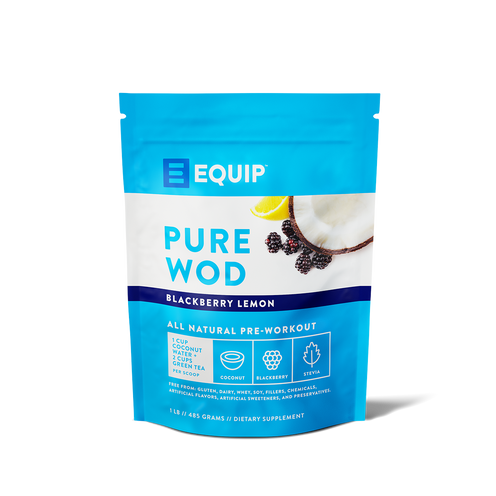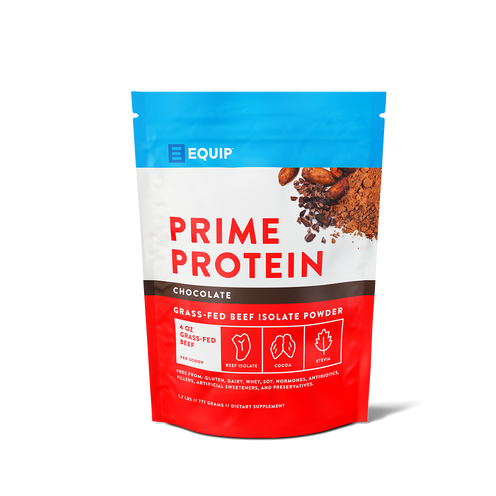What’s the first thing you think of when you think of collagen supplements? For me, it is a simple quote that I come back to time to time:
“Don’t ever fix your lips like collagen, and say something when you gon’ end up apoliging” – Kanye West
If I’m being honest, those probably are still my first thoughts, but now a collagen supplement is also one of the best supplements I use on a daily basis.
If we asked 100 people the same question, I bet 98 would answer Botox or Kim Kardashian, and maybe 2 would have answers along the lines of: soft-tissue recovery, joint health or connective tissue strength. However, that’s exactly why collagen is a fantastic, borderline essential supplement – especially if you are over 25 years old.
Did you know: The word collagen comes from the greek words, kolla (meaning “glue”) and –gen (meaning “creating”). Collagen is quite literally the glue that holds our body together and helps us move well.
The problem with not getting enough collagen
Many people experience chronic pain and slow recovery but could be fixing this easily with collagen supplements.
Ever feel pain in your joints, tendons or cartilage? Consider your fitness goals for a moment… I bet the ability to move well is an unspoken prerequisite for many of them.
Enter collagen. First, let’s dive into what collagen actually is.
What is Collagen?
- Collagen is a type of protein - 1 of over 10,000 in your body.
- Collagen is the most abundant protein in your body (25-35% - this is not a typo!).
- Collagen can be considered the glue that holds your body together.
- In water, collagen breaks into gelatin. They are the same amino acids with a different chemical structure. Think of them as the same tool, but different packaging.
- Collagen directly aids in [1][2][3]
- Energy production
- Building healthy DNA
- Detoxification and digestion
- Rebuilding joints, tendons, cartilage, skin, nails, hair, organs, etc. (I’m out of breath)
What You Need to Know About Collagen
Think for a moment on this: what are you doing to your body when you exercise?
In some form, you are breaking down your body and sending the signal that it needs to adapt in a specific manner.
The unfortunate new is that our body's natural collagen production begins to fall off a cliff at age 25.[4] By age 25, collagen levels are decreased at a rate of 1.5% a year. This is part of the reason why humans generally reach their physical performance peak in their mid-twenties.
I've seen so many of my elite athletes recover much quicker and experience less soreness and pain when they up their collagen and gelatin, it is mind boggling.
Athlete’s known for their longevity frequently use collagen in their recovery regimen. Check out this great story from Kobe Bryant, published in The Washington Post last year.
Getting extra collagen is not just reserved for elite athletes though. It’s available to anyone. I’ve heard some people describe it as a fad, but that couldn’t be farther from the truth. Humans have been benefiting from collagen-rich diets for literally 1000’s of years.
Add A Collagen Supplement to Your Toolkit
If you are not already boosting your dietary collagen, try it. Try it consistently for a few weeks. Treat this as a research and periodically check in with each part of your body. Ask your knees how they feel the day after squatting. Ask your elbows, hips, ankles, etc. the same.
What’s the best way to boost collagen? There are several great options, here’s a few:
- Eat more collagen packed foods like bones, skin and joint surfaces of healthy and high-quality animals.
- Make (How-to-guide) or purchase (Kettle and Fire) bone broth and incorporate it into your diet however you see fit. Don’t be selfish - share your recipes!
- Look into Prime Protein. The reason we developed Prime is due to the naturally high collagen content. Prime tastes phenomenal in coffee or water and everything in between, and most importantly, 30% of the protein is collagen.
Prime is made in the same fashion as bone broth and contains collagen, gelatin and all of the micronutrients you would get from eating a piece 4 ounce cut of grass fed beef.
As you now know, the collagen and gelatin helps build back joints and connective tissues, and the amino acids from the beef help you build muscle tissue rapidly.
Other Benefits of Collagen Supplements
In case you're not already sold on why you should be using a collagen supplement, here is another few reasons to push you over the edge:
Better Digestion
Collagen heals the digestive tract and helps repair mucous linings. It also helps break down the other proteins and fats in your diet, making them easier for your body to digest and use. [3]
Better Skin
Collagen plays a huge role in the elasticity and regeneration of your skin. Amino acids like glycine, proline and alanine promote skin moisture levels, smoothness and prevent wrinkles. [4]
Better Joint and Bone Health
Collagen repairs joint tissues and reduces inflammation and builds bone density. [3]
Better Sleep
Glycine in collagen plays a big role facilitating the optimal function of the neurotransmitters in your brain and digestive system. Collagen helps improve day time alertness, memory and sleep quality. [3]
Sounds like a no-brainer to me! Do yourself a favor - try it and see how you feel.
------
[1] Moskowitz, R. 2000. Role of collagen hydrolysate in bone and joint disease. Seminars in arthritis and rheumatism, 30 (2): 87-99.
[2] Ruiz-Benito, P., Camacho-Zambrano, M.M., Carrillo-Arcentales, J.N., Mestanza-Peralta, M.A., Vallejo-Flores, C.A., Vargas-Lopez, S.V., Villacis-Tamayo, R.A. and Zurita-Gavilanes, L.A. 2009. A randomized controlled trial on the efficacy and safety of a food ingredient, collagen hydrolysate, for improving joint comfort. International journal of food sciences and nutrition, 12:1-15.
[3] Clark, K.L., Sebastianelli, W., Flechsenhar, K.R., Aukermann, D.F., Meza, F., Millard, R.L., Deitch, J.R., Sherbondy, P.S. and Albert, A.. 2008. 24-Week study on the use of collagen hydrolysate as a dietary supplement in athletes with activity-related joint pain. Current medical research and opinion, 24 (5): 1485-1496.
[4] Castelo-Branco C, Pons F, Gratacós E, Fortuny A, Vanrell JA, Gonzalez-Merlo J. Relationship between skin collagen and bone changes during aging. Maturitas. 1994 Mar;18(3):199-206.


